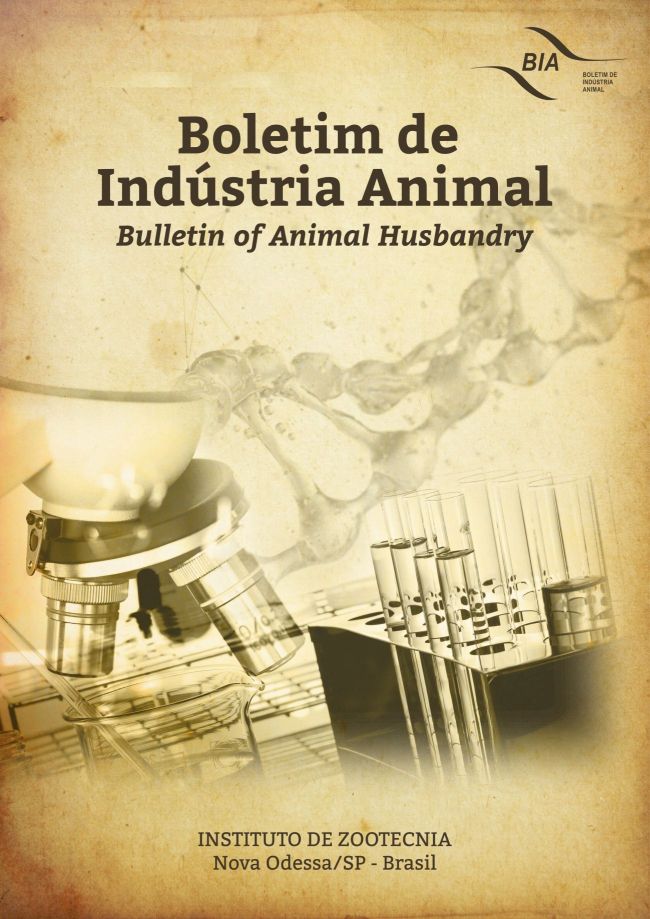Diagnóstico da produção de leite no município de Pejuçara-RS
DOI:
https://doi.org/10.17523/bia.2019.v76.e1463Keywords:
cattle, producers, rural extension, rural successionAbstract
The research had the objective of analyzing the production of bovine milk at different productive levels in the municipality of Pejuçara-RS. The semi-standardized, non-probabilistic and finite population sampling methodology was used. The research was carried out with 35 producers (90% confidence interval and 10% margin of error). The properties were grouped into three production strata: 0 to 200 liters / day; From 201 to 500 liters / day; And above 501 liters / day. Most dairy farmers are over 50 years old and over 20 years of experience in this activity. Of the total only 7 producers were under 40 years of age. The production systems are semi-intensive, where the animals are raised in cultivated pasture and receive feed and corn silage after the milking. This system, coupled with good animal genetics and adequate sanitary management, promotes an adequate production of animal milk / day. Much of the income of the municipality of Pejuçara is derived from the dairy activity, so the extension work serves as a support in the decision making aiming at improvements in the critical points and the improvement in the positive points in the diverse properties of the municipality.
Downloads
Downloads
Published
Issue
Section
License
Os autores não serão remunerados pela publicação de trabalhos, pois devem abrir mão de seus direitos autorais em favor deste periódico. Por outro lado, os autores ficam autorizados a publicar seus artigos, simultaneamente, em repositórios da instituição de sua origem, desde que citada a fonte da publicação original seja Boletim de Indústria Animal. A revista se reserva o direito de efetuar, nos originais, alterações de ordem normativa, ortográfica e gramatical, com vistas a manter o padrão culto da língua e a credibilidade do veículo. Respeitará, no entanto, o estilo de escrever dos autores. Alterações, correções ou sugestões de ordem conceitual serão encaminhadas aos autores, quando necessário. Nesses casos, os artigos, depois de adequados, deverão ser submetidos a nova apreciação. As opiniões emitidas pelos autores dos artigos são de sua exclusiva responsabilidade. Todo o conteúdo deste periódico, exceto onde está identificado, está licenciado sob a Licença Creative Commons Attribution (CC-BY-NC). A condição BY implica que os licenciados podem copiar, distribuir, exibir e executar a obra e fazer trabalhos derivados com base em que só se dão o autor ou licenciante os créditos na forma especificada por estes. A cláusula NC significa que os licenciados podem copiar, distribuir, exibir e executar a obra e fazer trabalhos derivados com base apenas para fins não comerciais.













